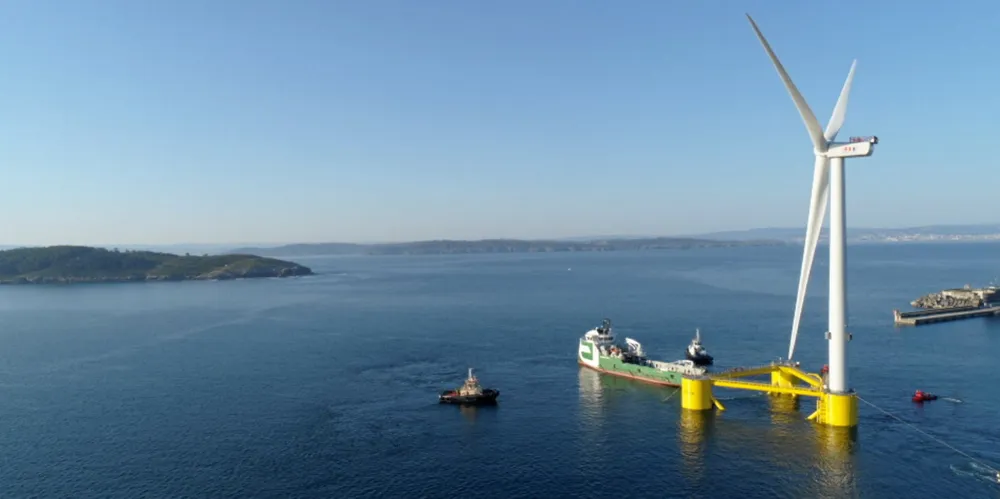UK green auction debacle blow for TotalEnergies-led floating wind pioneer
UK’s floating target now looks ‘unreachable’ and country risks being left behind by ‘more ambitious’ competitors, warns one industry expert

Plans for a pioneering UK floating wind farm are in jeopardy after the TotalEnergies-led consortium advancing the project did not bid in the nation’s disastrous latest green energy auction, which offshore developers shunned due to the low terms on offer.
Blue Gem Wind, a joint venture between French oil giant TotalEnergies and Ireland’s Simply Blue, did not enter the latest contract-for-difference auction for its 100MW Erebus test and demonstration wind farm in the Celtic Sea off Wales.
“Well-known global factors that have significantly increased supply chain costs in the last 18 months, combined with deploying floating technology in a region that has not previously supported offshore wind, have created a challenging environment,” a Blue Gem spokesperson is quoted as saying.
They continued that a “potential delivery strategy for Erebus is currently being developed which will have to fully consider future plans for CfD allocation rounds and we will continue to work with the relevant departments in UK government.”
The project, due to be commissioned in 2026, would generate enough electricity to power 93,000 homes.
As Wales’ first floating offshore wind project, RenewableUK Cymru’s director Jess Hooper said that Erebus is "entirely dependent" on this form of revenue support to succeed, and the success of Erebus is "critically important" not only to Wales but also for the UK’s floating offshore wind targets.
“This result will now delay investment decisions for developers, supply chain companies, ports and infrastructure, all with knock-on effects.”
She criticised the UK government for not heeding “clear warnings” from industry concerning inflation and supply chain squeezes when setting the price for energy, instead “focusing solely on competition through cost reduction.”
Maria Holm Bohsen, head of research at Aegir Insights, said there is a “significant challenge for floating offshore wind in the UK that needs a reliable route to market to develop from demo projects to the targeted gigascale.”
While last year’s auction had ring-fenced a budget for floating wind, she said that this year’s prioritised tidal energy.
“The positioning game of floating wind is on, and the UK risks being left behind by more ambitious countries that also have a strong desire to build a new offshore wind industry centered around floating wind,” she said.
“Offshore wind is not just energy politics – it’s industrial politics.”
The UK’s target of 5GW floating wind by 2030 is "entirely unreachable without substantial changes to the supporting framework,” said Holm Bohsen.
She added, “fixed-bottom projects are struggling to make viable business cases, and floating wind still doesn't have an established supply chain.”
(Copyright)